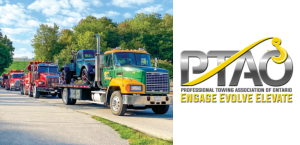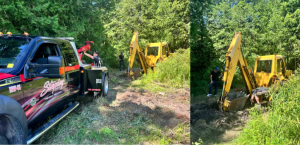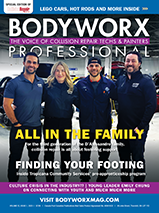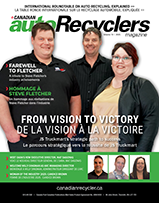By Dylan O’Hagan
Ottawa, Ontario — April 22, 2016 — Ontario’s Bill 15 focuses primarily on vehicle storage fees, but it’s also supposed to create greater transparency between towing companies and the consumer. However, ex-towing operator Derek Carr is hesitant about Bill 15. He says it’s a good idea in theory, but not so good in practice.
Legislation around storage goes into effect July 2016 with the towing regulations following in January 2017. Also known as the “Fighting Fraud and Reducing Automobile Insurance Rates Act,” Bill 15 will introduce quite a few new regulations surrounding towing and storage. They include: the tower must have prior permission from the customer to tow a vehicle, towing companies must accept debit or credit cards, the tower must tell the consumer where the vehicle is being taken and customers must be allowed to access property within the towed vehicle.
Transparency is something Carr has supported in the towing industry, even having a book of listed prices for customers to look at. In an interview with Canadian Towing & Recovery magazine, Carr said the idea of greater transparency is good but he believes there is a better way to go about it.
“I understand why the government believes the legislation is required. I just don’t think it was,” he said. “I think there was a better route to take than actually create legislation that now has to be enforced. You’re paying every politician in there talking about it. With the time and money spent passing this Bill, an oversight committee to enforce regulations could have already been put in place.”
Carr agrees and disagrees with different parts of Bill 15. Letting customers access their property in vehicle while being stored is common sense, he said. Another part of Bill 15 limits requires operators to have a Commercial Vehicle Operators Registration certificate. This certificate limits the amount of hours drivers can operate tow trucks and means towing operators are subject to Ministry of Transportation inspections as well as other requirements. Carr disagrees with this and says it could have a serious negative impact on the consumer.
“The towing hours cap is something that bothers me. I could clock on at 6 o’clock in the morning, work until 9 or 10 stay on rotation, go home. Now I’m out of a truck at home while I could just go to sleep with the radio on,” he said. “In the end, it all filters down to the poor consumer. Say operators can only go for eight hours a day, watch the tow rates go up, because they will.”
The bottom line for Carr, however, is that he believes Bill 15, as it relates to towing, isn’t necessary. Carr said it should have been handled at the private level or by an organization that would enforce regulations.
“I agree with the whole transparency thing. I mean, I was putting into effect ahead of time, but I have my doubts,” said Carr. “It’s great putting legislation into effect but you still need someone to enforce it. Same as the previous existing laws, you needed somebody to enforce it.”



















